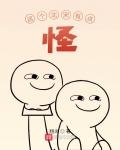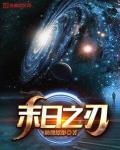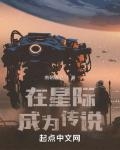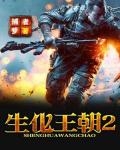Volume 1 Chaos Comes Chapter 2 The Feast is Over
When the topic turned to the fish-flavored shredded pork in the second cafeteria, we finally arrived at the teacher's office.
The office is not big, and the books piled up all over the room make it seem even more cramped. An old man is sitting in the corner with heating and sunlight, reading a paper. He is wearing a fitted woolen waistcoat and well-cut handmade trousers, and a pair of simple cloth shoes on his feet, which I have only seen in TV dramas about the Republic of China.
Regardless of the age difference, Mr. Xie took the initiative to come over and shake hands with both of us. When he stood up, he pounded his waist twice, probably because he had just sat on the chair for too long.
His hands, covered with age spots, were very strong, and even squeezed me a little painfully. After he loosened his grip, he gestured for us to sit on the sofa first.
I saw the girl sitting in the middle of the sofa, slightly to the south, and she was leaning on the armrest on the other side. After sitting down, I found that the book wall opposite was full of books about complex systems, especially chaos theory, some in Chinese and some in various foreign languages.
There are volumes of Chinese characters, Latin letters, and Cyrillic alphabets intertwined, some of which look much older than I am.
"My name is Jie Kun. Jie means the solution of an equation. When used as a surname, it has multiple pronunciations. Kun is composed of a character for "king" next to a character for "Kunlun"."
Teacher Xie returned to and leaned against it. His voice was steady and clear, which did not match his old appearance.
"…I'm doing chaos research. Hey! You are the best undergraduates of this class. Thank you for taking the time to meet an old man like me."
I felt a little ashamed when I heard this, because I knew clearly that my previous grades were not the best, and I had no scientific research experience, but now I can still explain it away with the reason that I am just an undergraduate student.
“Youth is such a luxury. It seems like there is endless time and you can achieve great things in any direction you choose.”
The old man smiled bitterly, and I read a hint of helplessness in his smile.
"I was very stupid when I was an undergraduate and had no interests of my own. Later, I was influenced by my mentor and embarked on this path in a muddle."
I had some knowledge of Professor Xie before I was admitted to this university. He is a leader in the study of complex systems in China, and he studied under the famous former Soviet mathematician and physicist Andrei Kolmogorov, who is one of the founders of the entire complexity theory.
Teacher Xie picked up the paper cups that were already on the table and tremblingly poured us some chrysanthemum tea. I stood up, took it and handed a cup to the girl. The water droplets condensed from the steam floated in the small room, giving us an illusion of warmth.
"Why don't you introduce each other first. Do you know each other before?"
We looked at each other, and when our eyes met I quickly turned my head back.
"My name is Ai Bishui, the same as in absinthe, and the same as in spring|the water is clearer than the sky. I'm in the physics class."
As I expected, she spoke first.
"My name is Fang Cheng, Fang as in upright, Cheng as in successful, and I'm also in Class 1."
Teacher Xie looked at us for a long time, as if expecting more information, but neither of us had much to say.
"The name is very poetic. Spring water is bluer than the sky, and I sleep on a painted boat listening to the rain."
The woman beside the wine shop is like the moon, with white wrists covered with frost and snow. I subconsciously recalled the touch of her forearm, and a second later I quickly pulled my thoughts back.
"I have been working all my life on using mathematical models of random processes to explain chaos. You should know that chaos itself is not random." Teacher Xie stroked his gray hair, found a comfortable position, leaned against the desk and faced us.
Before coming here, I made up some time for chaos theory in order to read some articles, so I still know this.
"Well, chaos is the phenomenon of getting unpredictable results from a few deterministic formulas. This unpredictability is due to the fact that the chaotic system is sensitive to the initial value. Any slight deviation in the initial value will be infinitely amplified by the system iteration process."
I blurted out this long sentence almost without thinking. When discussing pure object concepts, people don't dwell on it.
Wittgenstein once said: "Whatever can be said, can be said clearly; whatever cannot be said, one should remain silent."
When I was in middle school, I liked to repeat what he said and say some mysterious things.
"Correct. In fact, there has been no major breakthrough in the theoretical study of chaos for forty years." He picked up two stacks of papers from the table and handed them to us. On them were photocopied color papers. "Until the publication of this work."
I flipped through the article in my hand. It was the same article as the one in the email that Teacher Xie had sent me before. The three capital letters "PHYSICAL REVIEW LETTERS" were clearly printed on the header of each piece of paper.
This is Physical Review Letters, or PRL for short, which is the top journal in the field of physics that accepts submissions. It also has many sub-journals, such as PRA, PRB, and finally PRX, among which PRE is in the field of complex systems.
"The author of this article called his work Complexity Unified Theories, which he abbreviated to CUTs, which stands for the first part of a 'complexity unified theory.'"
The name is obviously based on the Grand Unified Theories.
“You know what problem it solves?”
“It’s a problem of regulating complex systems.”
After Ai Bishui finished speaking, she glanced at us and I nodded unconsciously.
"It connects different types of system dynamics, describing the phenomena exhibited by complex systems such as self-organization and chaos with a unified formula system. Based on these formulas, we can predict and control the dynamics of all complex systems."
Since I hadn't finished reading the paper, I could only memorize her words first, and at the same time quickly took out the notebook from my schoolbag. When I turned around, I caught a glimpse of Teacher Jie's admiring look out of the corner of my eye.
"That's a good answer. The significance of this theory is that it tells us how external influences can cause changes in the inherent properties of a system. And this influence is applicable to almost all known complex systems."
I was completely confused by these nouns and could only write down the original words in a notebook and then slowly understand them later.
"This research direction is not closely related to other courses offered in the department. You should be able to understand many articles by now."
The old man took a sip from the thermos cup, then slowly exhaled. "What is certain is that humankind's research on complex systems will usher in a big explosion. Unfortunately, I am powerless now, and can only hope that your generation will witness its future glory."
The corners of his mouth twitched, and his figure standing in front of the window looked very lonely.
The feast of particle physics in the 20th century has passed, will systems science research be the new feast in the 21st century?






